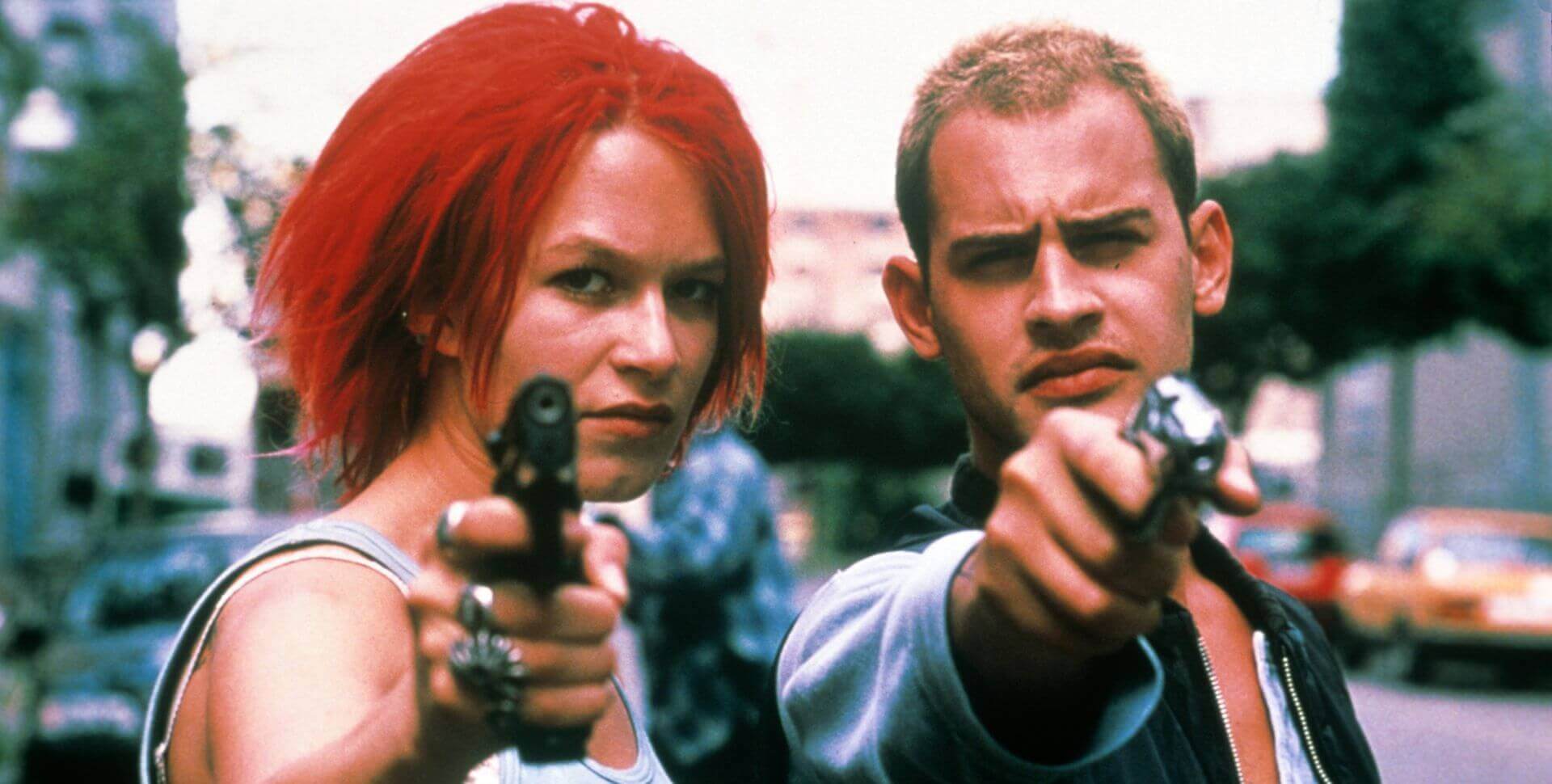In a Berlin apartment in 1998, the world was introduced to Lola, a young woman with much more on her mind than any normal person could handle. When she gets a call from her boyfriend Manni who informs her that he lost 100,000 marks on the train, she has to run for her life and his to ensure she gets the money or he will rob the nearest store. In Run Lola Run, director Tom Tykwer makes a meal out of these utterly compelling and heart-racing 20 minutes, by focusing on three alternate timelines and showing how even the smallest choices can have huge effects. The film gave birth to long and prosperous careers for its director and two leads and helped change the face of German cinema. It's no wonder that after so many years, audiences and filmmakers can't stop referencing it.
New and Old Styles. Tykwer's film can only be described as singular and his work on Run Lola Run demonstrates that auteur is too small a word to encompass everything he brings to a production. Tykwer contributed to the screenplay and composed the music alongside Johnny Klimek and Reinhold Heil. An electrifying and pulsating techno beat that drives Lola to the ends of the world; it still manages to feel fresh today, inspiring countless others. It's hard to imagine a world where Luca Guadagnino can make Challengers alongside musicians Trent Reznor and Atticus Ross without this contribution. In all aspects, Tykwer's touch creates a melange of the best of the old and the contemporary. With its electronic soundtrack, cartoon interludes, and perfectly choreographed shots, some parts of the film feel like the very best Bjork music video. Then, when that becomes too much, Tykwer turns to silent comedy influences like Buster Keaton or Harold Lloyd with tried but true sight gags or philosophical heavyweight directors like Krzysztof Kieslowksi with scenes that seem straight of out The Double Life of Veronique. Maybe in another time and place, these differing aesthetics would clash harshly, but in the kooky world of 1990s Berlin, this melange fits perfectly.
The Birth of New Stars. No one could lead this mystifyingly complex film better than Franka Potente. Tykwer may have created the story, but Potente fleshed it out and gave it the strength and vulnerability necessary, all while running in a pair of Doc Martens. Potente is pensive and loving in her pillow talk scenes with her boyfriend, dejected and angry with her father, and in control and fearless on the street. She's a Lara Croft with red hair and flaws, in other words, an extremely human heroine. Alongside her, Moritz Bleibtreu takes on the challenge of making this bumbling idiot out a hundred grand seem like someone we can understand. Where Potente makes use of her entire body to convey her character's needs and desires, Bleibtreu spends most of the film trapped in a telephone booth. Allowing his nervous darting eyes to convey his utter terror and sadness in this comically terrible situation, Bliebtreu is never less than absorbing.
Both a snapshot of a time gone by and an enduring and universal story, Run Lola Run is the best kind of action film. It would be easy at first to mistake it for a cheap thrill ride that is forgotten as quickly as it's over, but its philosophical debates on the nature of free will put it a cut above the rest.

Watch Run Lola Run now in select theaters
